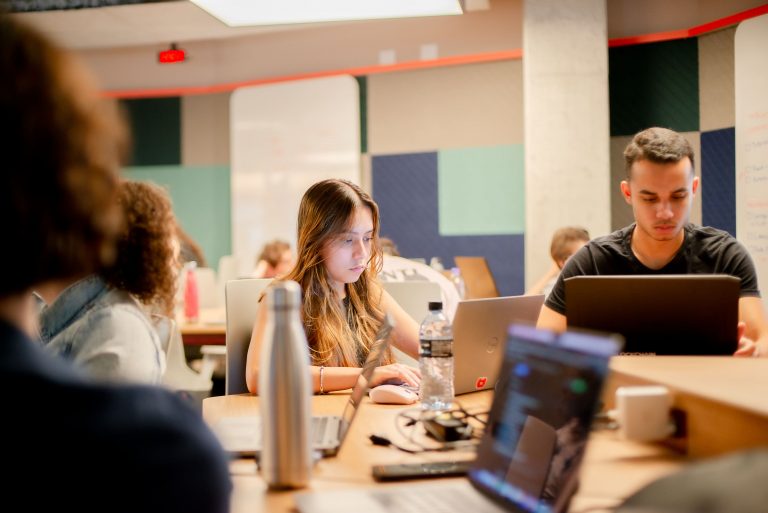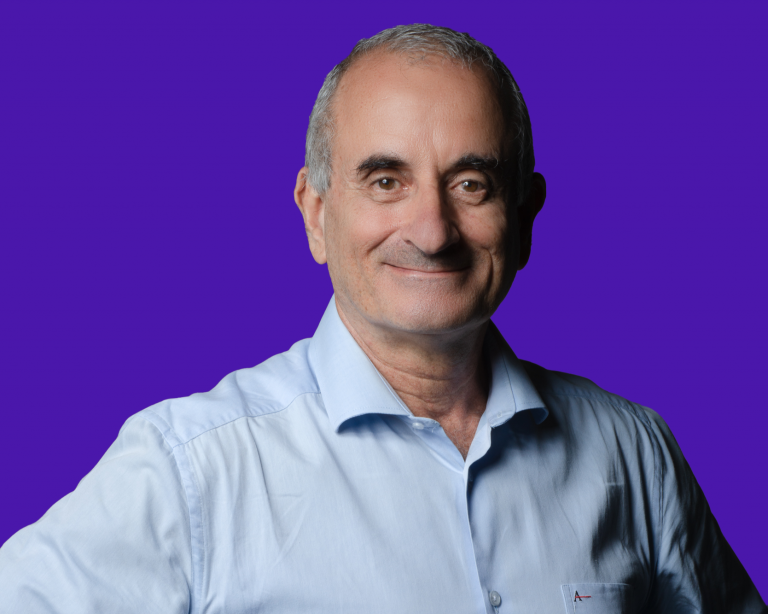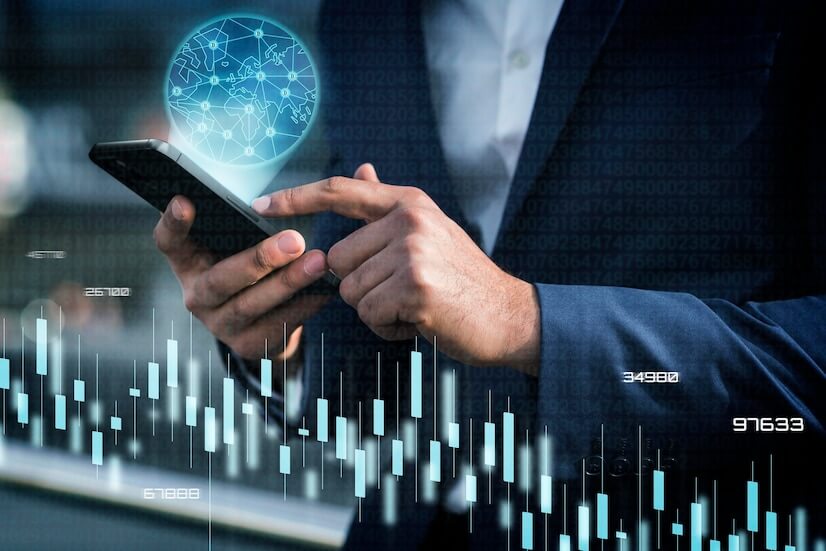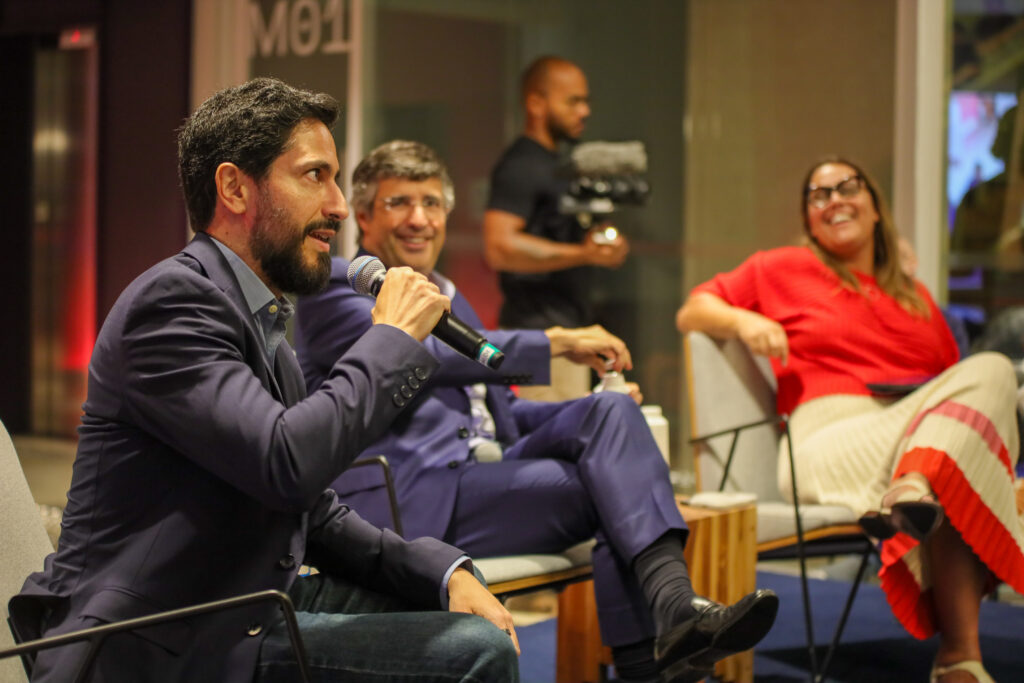 André Esteves and Ronaldo Lemos take part in a panel for Inteli's freshman class. We live in an era in which artificial intelligence (AI) is no longer a distant promise, but a reality that is already transforming the way we work, communicate and make decisions. From automating processes to creating new business opportunities, AI is redefining the future - and Brazil plays a crucial role in this scenario.
André Esteves and Ronaldo Lemos take part in a panel for Inteli's freshman class. We live in an era in which artificial intelligence (AI) is no longer a distant promise, but a reality that is already transforming the way we work, communicate and make decisions. From automating processes to creating new business opportunities, AI is redefining the future - and Brazil plays a crucial role in this scenario.
At the opening of Onboarding Week for the freshman class of 2025, businessman André Esteves, chairman of BTG Pactual and co-founder of Inteli, and Ronaldo Lemos, a specialist in technology and digital law, discussed how AI impacts the economy, the job market, energy consumption and, above all, Brazil's role in an increasingly digital and interconnected world. The panel was mediated by the institute's president, Maíra Habimorad, and welcomed more than 200 people, including students and parents, kick-starting the students' academic lives. The Week covered topics such as artificial intelligence, emerging technologies, entrepreneurship and leadership.
Check out the main insights from this inspiring conversation:
Training the Technology Leaders of the Future in Brazil
André Esteves, co-founder of Inteli, highlighted Brazil's potential to take on a leading role in the global technology scene, emphasizing that technology serves as a catalyst for development and innovation. He illustrated the technological revolution by recalling: "Man went to the moon with less than 0.1% of the computing capacity that each of you has in your pocket".
The founding of Inteli is the result of a sequence of frustrations that André experienced both in his academic training and in the limitations he perceived in the Brazilian education system in relation to the global demand for engineers and technology leaders. Inteli was conceived to be an environment where critical thinking, leadership and innovation are not just taught, but experienced, with the aim of positioning Brazil as a leader in technology and innovation on the global stage.
"We want to build something world-class here in Brazil that we can be proud of. Just as great visionaries created institutions like Harvard, MIT and Stanford, we are doing the same here. The true result of our work is not only measured by your presence here today, but by the transformative impact you will have on Brazil over the next twenty years, in the same way that graduates from these prestigious universities have transformed the United States, taking innovation and progress to new heights."
DeepSeek and Breaking Paradigms
Ronaldo Lemos highlighted the impact of DeepSeekan AI model developed in China that competes directly with ChatGPT, illustrating how technology is democratizing access to innovation. "DeepSeek is just as good as ChatGPT on the key metrics, only it costs a fraction of the price, knocking NVIDIA's share price down by 10%. This shows that you don't need a $500 billion data center to be competitive."
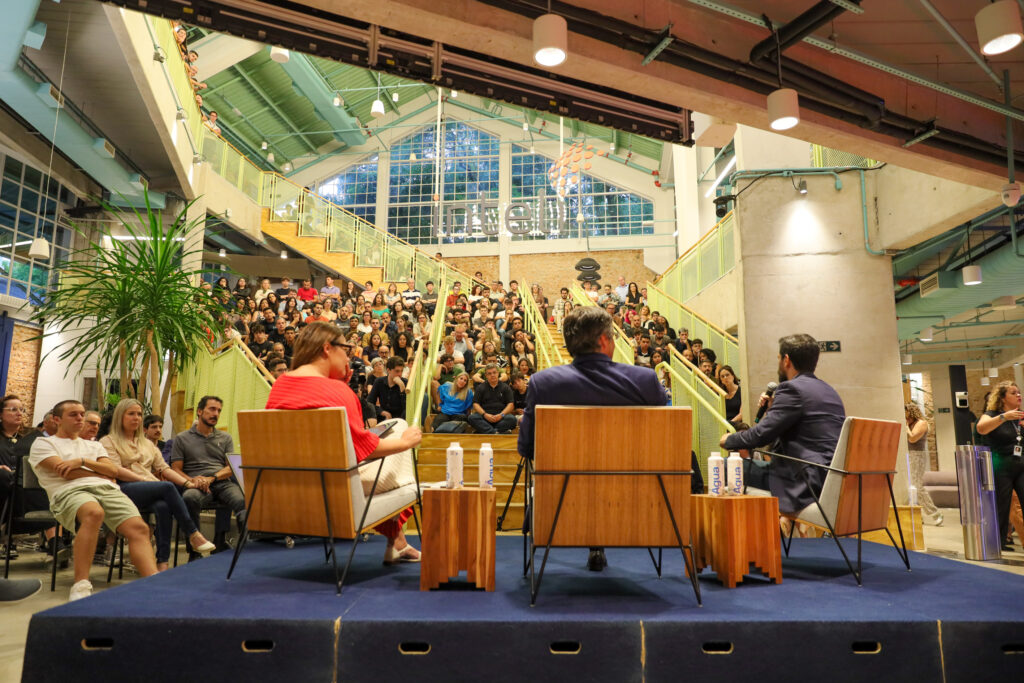
DeepSeek's breakthrough challenges the idea that only tech giants can lead innovation in AI. Trained with second-generation chips and an efficient software architecture, it proves that creativity and technological optimization can overcome resource limitations. Ronaldo reinforced the message that the potential for innovation is within everyone's reach: "Don't let anyone tell you that you can't create something great in technology."
Energy, Sustainability and Opportunities for Brazil
The transition to the topic of sustainability comes naturally, as AI not only shapes the future of innovation, but also imposes significant environmental challenges. Ronaldo Lemos, who addressed the topic at Davos, highlighted the impact of the growth of data centers: "Today, data centers in the United States consume 6% of the country's energy, and the emissions generated globally by these centers are already equivalent to those of the aviation industry."
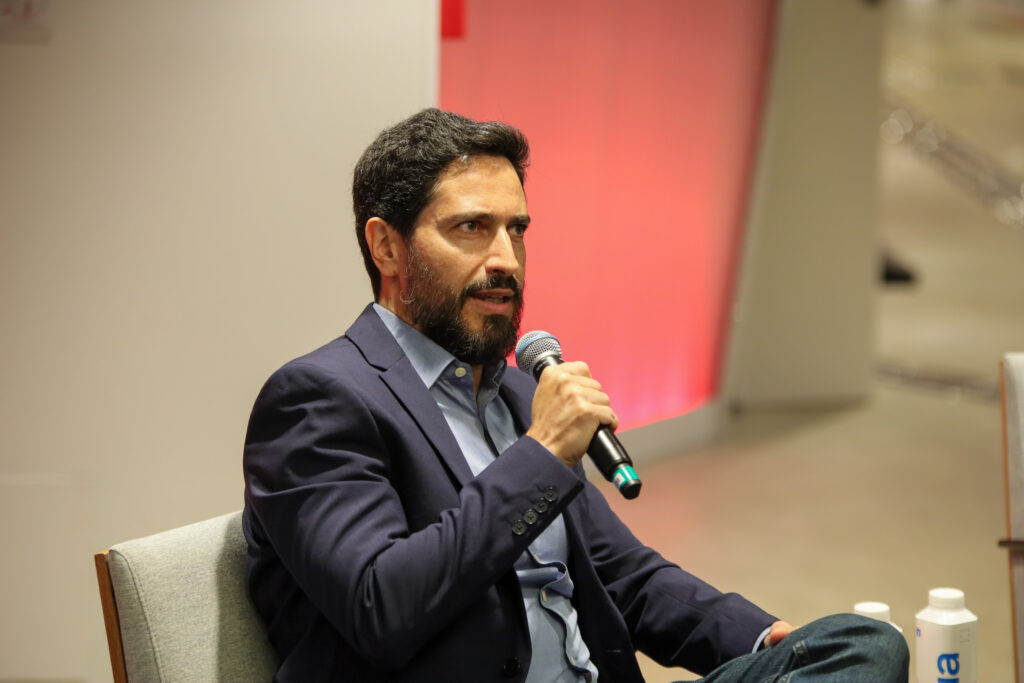 In this context, Brazil stands out. "Brazil's energy matrix is 93% renewable. This is a competitive advantage that we can exploit [...] because it's not acceptable in today's world to burn more fossil fuels to power data centers" said Ronaldo.
In this context, Brazil stands out. "Brazil's energy matrix is 93% renewable. This is a competitive advantage that we can exploit [...] because it's not acceptable in today's world to burn more fossil fuels to power data centers" said Ronaldo.
André added: "Brazil has a surplus trade balance, we export ore, oil and agricultural commodities, soy, corn, sugar, coffee, etc. But we can become an exporter of data. This ball is in front of us, it's on the penalty spot, it's easy to see."
André also reinforced that, during the discussion at the World Economic Forum in Davos, BTG Pactual created "Brasil House", a platform dedicated to raising Brazil's profile and discussing its potential and challenges in an international context. Esteves expressed a certain frustration with Brazil's previous absence from Davos, criticizing the distorted perception that both right-wing and left-wing governments have of the event, each seeing it as contrary to their ideological interests.
With Brasil House, Esteves and BTG sought to correct this omission, offering a space for Brazil to share its achievements and seek solutions to its challenges on the world stage, in an attempt to integrate the country more deeply into global economic and technological discussions.
Regulating Artificial Intelligence: The Challenge of Balancing Protection and Innovation
The advance of AI also brings complex regulatory challenges. Ronaldo Lemos pointed out that "the problem with regulating technology is that it is now used in all areas of human life." He criticized the European model for regulating AI, which focuses exclusively on risk protection, comparing it to a soccer team that only fields defenders. "And a team with only defenders doesn't win."
For Ronaldo, Brazil must adopt a broader approach to balance protection, competitiveness and innovation. This means creating a regulatory environment that protects users, but also encourages the development of new technologies and global competitiveness.
Leadership and Careers in the Age of Artificial Intelligence
In a world increasingly impacted by artificial intelligence, leading and building a successful career requires more than just technical skills. For Ronaldo and André, the real difference lies in the combination of interpersonal skills, resilience and passion for what you do.
Ronaldo emphasizes that leadership in the age of AI is the ability to "to see an issue that is complex, it has several layers, and to see ways of mobilizing and creating strategies so that you can carry out an activity there that is promising within that complexity." He points out that the demand for technology professionals is high, but the need for leaders who know how to inspire, understand the context and value people's potential is even greater: "The demand for engineers is absurd. The demand for leaders, then. It's even greater. And I think that if you put the two together, and that's why it's beautiful, from Inteli this project, it's unbelievable."
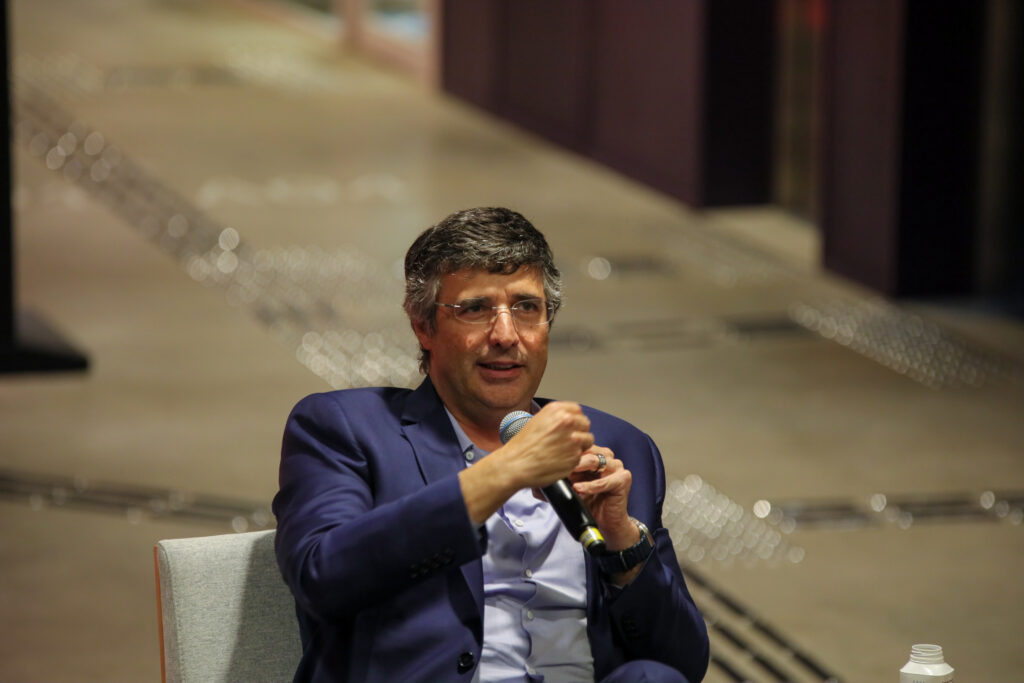 Complementing this view, André pointed out that "success is highly correlated with dedication." Resilience is also essential, because "Unusual things are going to happen in your life. And you have to have the capacity, especially emotionally, to get through these situations and build on them."
Complementing this view, André pointed out that "success is highly correlated with dedication." Resilience is also essential, because "Unusual things are going to happen in your life. And you have to have the capacity, especially emotionally, to get through these situations and build on them."
Continuous learning was another key point discussed at the meeting. "What you learned ten years ago is no longer useful in today's world. Knowledge is dynamic." André shares his study routine at the bank, where he organizes internal events to explore new topics and keep up to date. He also highlights the role of luck, but with a pragmatic perspective: "Luck has a huge correlation with dedication. It's mathematical. What we call luck is the intersection between opportunity and ability."
Finally, André stresses that work should be a source of personal fulfillment: "Doing what you love makes a huge difference. It doesn't mean there won't be frustrations, but you feel you're growing, producing, improving and happy with what you're experiencing."
Conclusion
The future of artificial intelligence is a vast and dynamic field, full of opportunities and challenges. Brazil, with its renewable energy matrix, human potential and growing insertion in global debates, has the chance to stand out in this new scenario. As André and Ronaldo emphasized, the difference lies in how we take advantage of these opportunities: with inspiring leadership, intelligent regulation and a mindset geared towards innovation.
The road to success in the age of AI requires more than technology - it requires strategic vision, resilience and the ability to turn challenges into opportunities. And for Brazil, the time to act is now.


